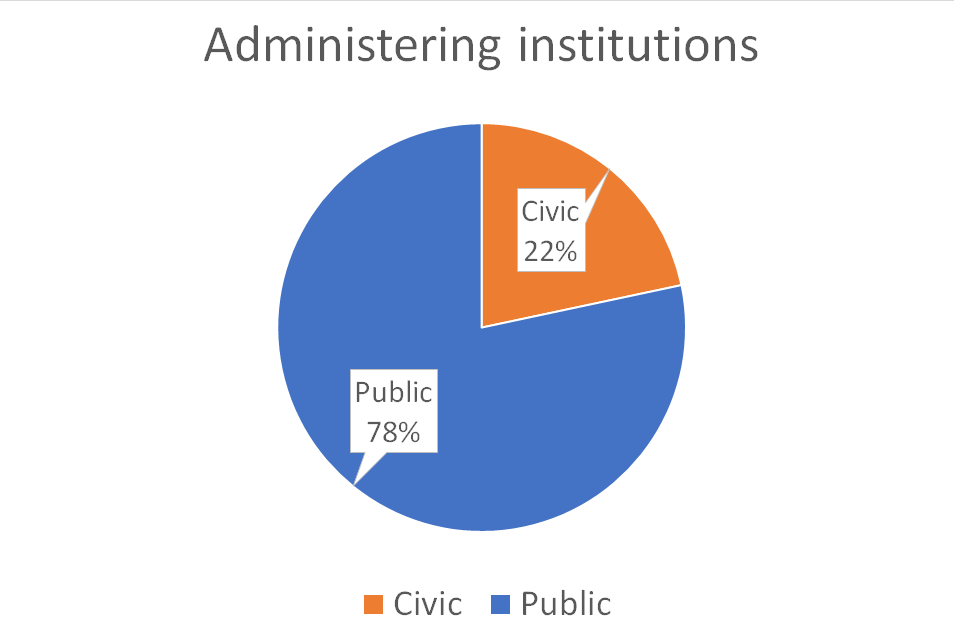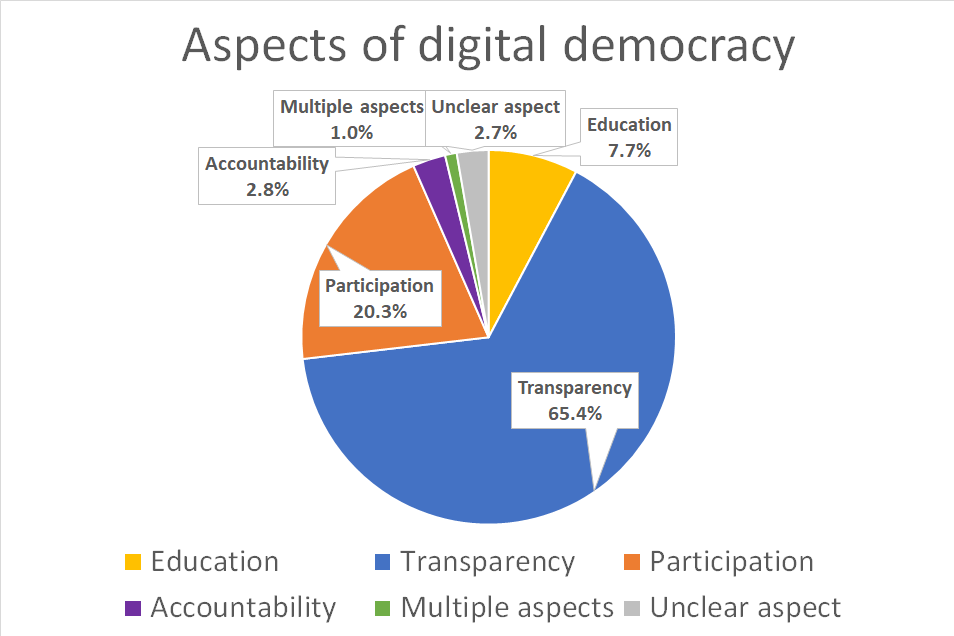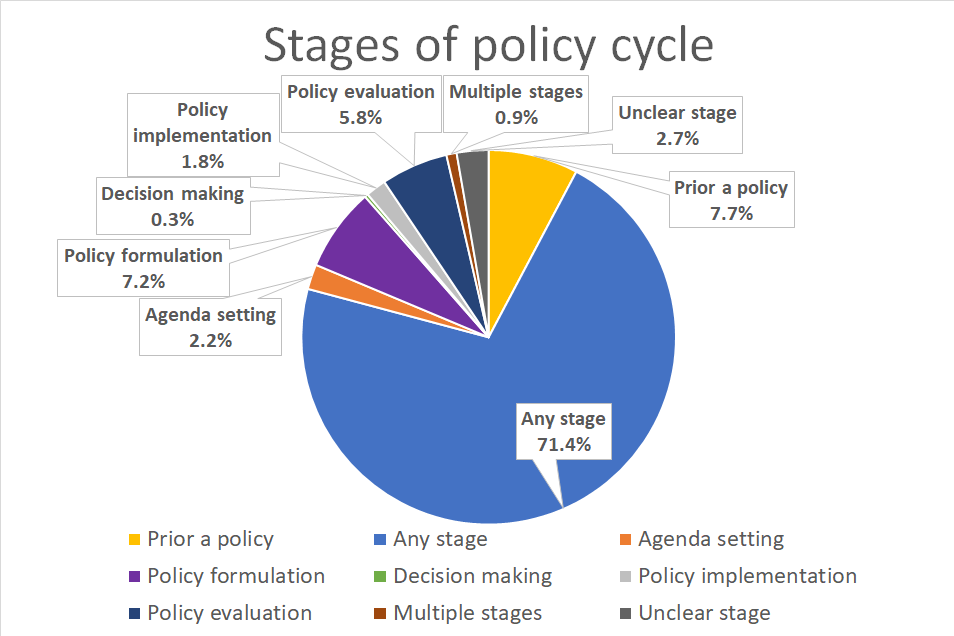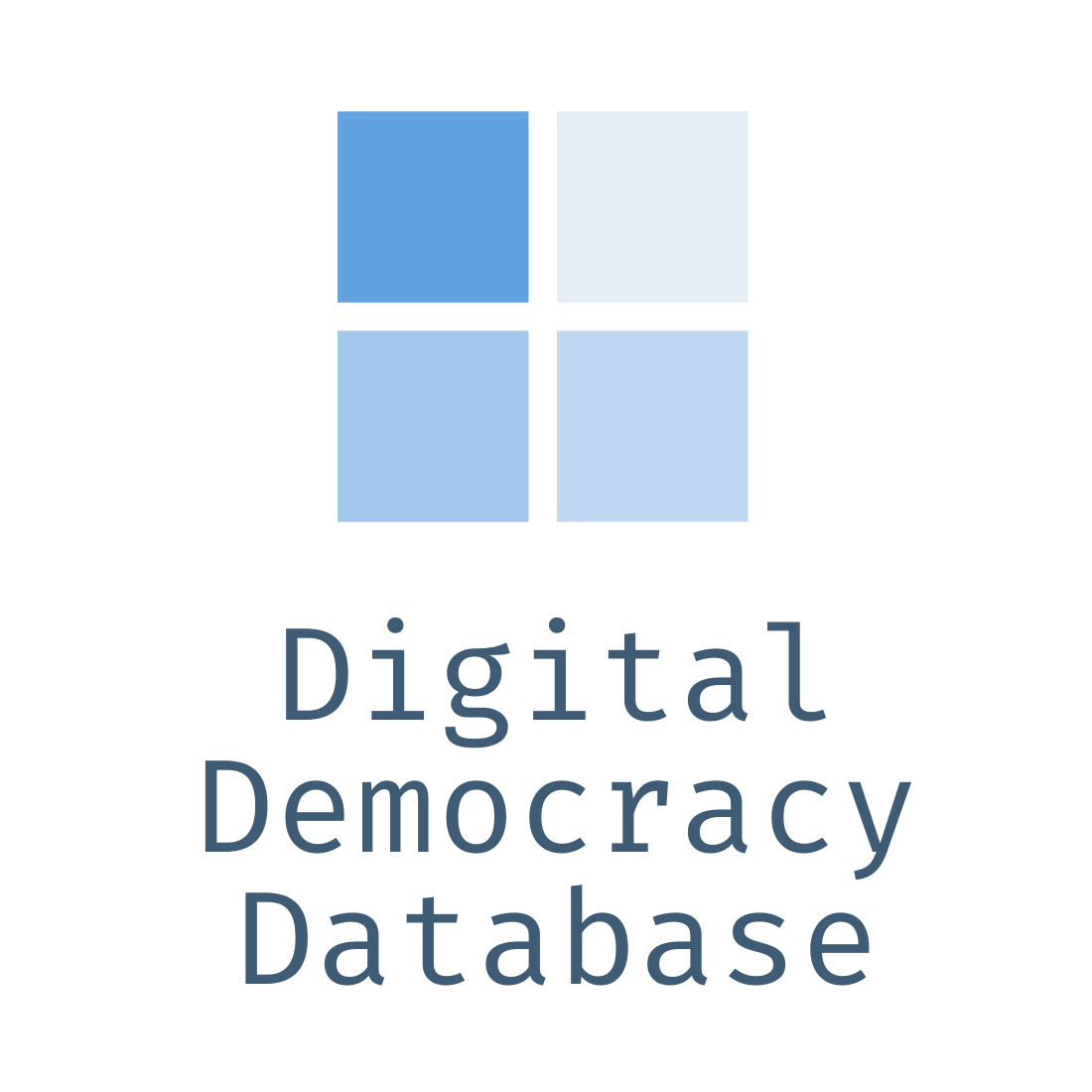About:
This evolving project is designed to identify and analyse cases of digital democracy aspiring to consolidate global democracy by discovering and sharing good practices of open participatory governance worldwide.
It is intended as a source of data for scholars, policy analysts, civic activists, politicians, and other interested parties.
The initial edition is an entirely volunteer collaborative effort of an international team of 40 analysts who collected, coded, and reviewed data for 10 months. The project is kindly hosted by the European Digital Development Alliance.
The focus of the pilot undertaking is pan-European. Therefore, the first version includes 50 countries (Europe according to the United Nations, the Council of Europe, and the European Union) and over 1000 digital democracy cases identified by manual online search and content analysis during May 2020 – February 2021.
In the next releases, the geographical and institutional scopes of the project will expand. To contribute to the cause of strengthening global democracy, you can suggest updating the existing cases or offer adding entirely new ones.
All e-democracy websites in the database are systematically described and classified according to a unified conceptual framework.
In the future, the dataset will be also accompanied by analytical articles about generic digital democracy instruments and specific instances. You are very welcome to submit such papers.
Digital Democracy Database is open and available for free. You can use it for your academic research, teaching, policy making, community development, and other non-commercial purposes.
Citations:
When using Digital Democracy Database data and metadata, please cite original sources:
Khutkyy, Dmytro. 2021. Digital Democracy Database. European Digital Development Alliance. https://www.europeandigital.org/digital-democracy-database.
Khutkyy, Dmytro. 2020. Digital Democracy Database – definitions. European Digital Development Alliance. https://europeandigital.org/files/19/DDD/digital-democracy-database-definitions.pdf.
Interactive map:
Basic infographics:



Open datasets:
Digital Democracy Database (50 countries) version February 2021 (CSV)
Digital Democracy Database (50 countries) version February 2021 (XLSX)
Conceptual framework:
Digital democracy is defined as the collective use of information and communication technology for practices of politics and democracy in both online and offline environments (van Dijk & Hacker 2018).
Aspects of digital democracy: transparency, accountability, participation, and civic education.
Stages of policy cycle: agenda setting, policy formulation, decision making, policy implementation, and policy evaluation.
Types of digital democracy instruments by aspects:
Education: text content, audio podcasts, video materials, online course, e-game, unified educational portal.
Transparency: basic public information website, sectoral public information website, legislation database, open data portal, geospatial portal, unified transparency portal.
Participation: online media analytics, idea maps, e-initiative, e-campaign, e-petition, e-deliberation, e-consultation, e-drafting, e-polling, e-voting, e-referendum, e-election, crowdsourcing, crowdfunding, peer-to-peer development, e-collaboration, e-appeal, open data analytics, open data feedback, e-journalism, unified participation portal.
Accountability: e-reports, e-meetings, performance dashboard, AI-enabled analytics, e-tracker, e-audit, e-oversight, unified accountability portal.
Multiple aspects and stages: unified e-democracy portal.
Unclear aspect or stage: other e-democracy website.
Definitions of all variables and related concepts are provided in the Definitions file.
Research methodology:
Country sample: European countries according to the United Nations Statistics Division definition of regions, the Council of Europe member states and applicant countries, and the European Union member states – the total of 50 countries.
Unit of analysis: a website dedicated to a digital democracy instrument of a nationwide scope.
Method of data collection and analysis: manual online search and content analysis of detected cases.
Data validation procedure: blind review and cross-checks by three researchers (analyst, reviewer, and project leader).
Fieldwork period: May 2020 – February 2021.
Project scope:
Number of cases: this project focuses on a reasonable number of the most easily searchable online and hence the most visible ones, instead of venturing to catalogue all existing e-democracy websites.
Number of governmental websites: for each country, of all available governmental websites, each national dataset aims to present at least one case of the parliament, the president, the executive government, and the judiciary.
Depth of analysis: wherever possible, complex multi-webpage portals are disaggregated into components so that each e-democracy instrument is displayed as a separate website.
Coding validity: the research team did its best to classify cases according to common definitions, yet of course, for some cases there might be different interpretations.
Submit a case:
If you would like to contribute to the database and propose a case, please fill in the Case submission form.
Contact project team:
If you would like to provide a feedback or engage in a cooperation, please feel free to communicate via email.
Acknowledgements:
Project leader:
Project analysts:
Artur Aheiev, David Androshchuk, Ambra Avenia, Juulia Baer-Bader, Ganna Bazilo, Ilvija Bruge, Loredana Bucseneanu, Mikhail Doroshevich, Valeriia Hudz, Oksana Huss, Oleksandra Keudel, Mariia Kriuchok, Olena Leonchyk, Alex Macdonald, Maciej Makulski, Gabriela Maldonado, Anna Melenchuk, Ana Mohoric, Victoriia Mudrak, Alina Novosolova, Dmytrii Pasevych, Liljana Pecova, Olena Podolian, Anastasiia Popova, Oksana Romanyshyn, Anastasiya Salnykova, Mila Shchepina, Ildiko Simon, Yevheniia Slozka, Veronica Svitach, Anastasiia Svitlychna, Kateryna Tsybenko, Andrii Tymofeiuk, Victoria Vdovychenko, Dmitrii Volodin, Peter Westman, Nataliya Yeremeyeva, Danylo Yevtukhov, Kateryna Zablotska.
Project hosting organisation:
European Digital Development Alliance
Copyright:
Creative Commons Attribution-NonCommercial-ShareAlike 4.0 license
